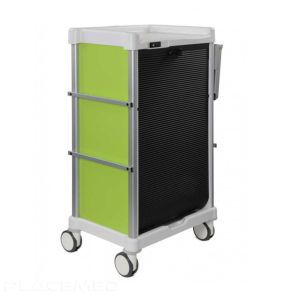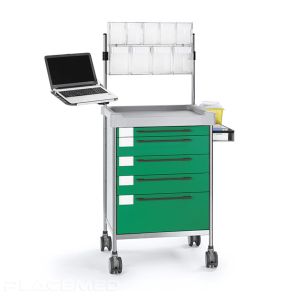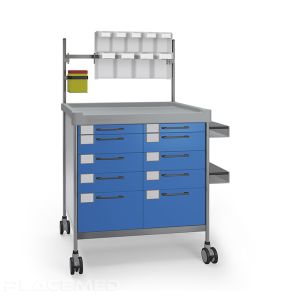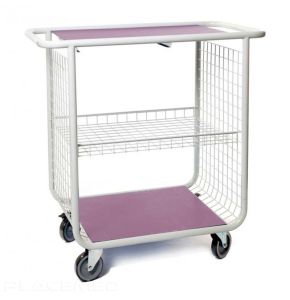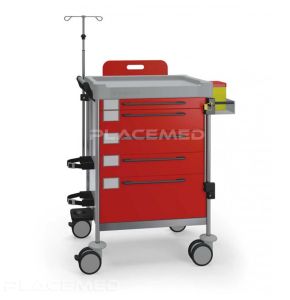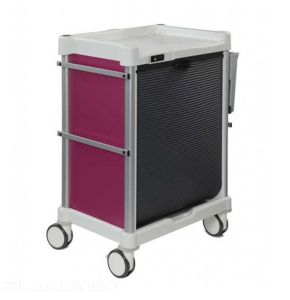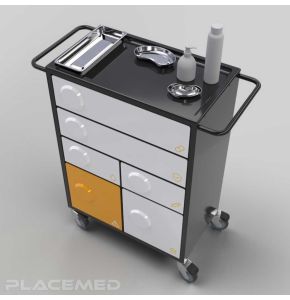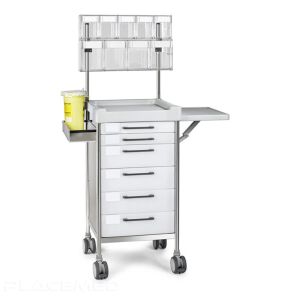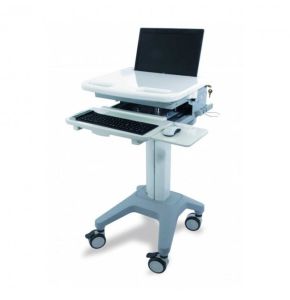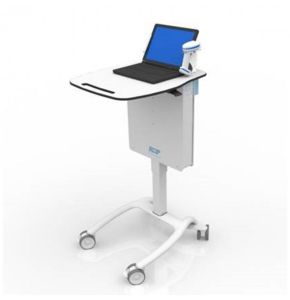Medical trolley
PSM Medical Trolley: Antibacterial & Customizable Care Trolley
Price on request18/11/2024 348
Anesthesia trolley - INSAUSTI -Q096W - 480 x 480
Price on request18/11/2024 243
Medical Laptop Cart - MED-SMART Series
Price on request18/11/2024 380
Laptop medical cart
Price on request18/11/2024 358
An Efficient Medical Cart for Optimized Patient Care
Medical carts are essential for healthcare professionals. They facilitate the transport of medical equipment, medications, and improve the quality of nursing care. Whether in a hospital, clinic, or nursing home, these carts optimize the work of healthcare staff and contribute to more effective care.
Functions of the Medical Cart
The medical cart is a key element in healthcare facilities. It allows for easy transport of necessary equipment, medications, and various supplies. Thanks to its versatility, it helps improve workflow and facilitates patient care. The emergency cart, for example, is always ready for critical situations, containing all the essential equipment to save lives. The nursing care cart helps nurses have everything necessary at hand to provide efficient and quick care.
In nursing homes, the nursing home care cart is specially designed to meet the needs of elderly residents, easing the tasks of nursing staff. The hospital cart, on the other hand, is adapted to the demands of hospital departments, offering large storage capacity and optimal mobility in often crowded corridors.
Types of Medical Carts
There are different types of medical carts adapted to the specific needs of each department. The emergency cart is equipped for critical situations, containing all the necessary equipment to intervene quickly, such as defibrillators, vital medications, and resuscitation devices. The medication cart is designed for the secure distribution of medications, with locking systems to protect sensitive substances. The nursing cart, also called nurse cart, facilitates daily nursing care by grouping essential tools like dressings, syringes, and gloves. The nursing cart is essential for basic care and patient comfort.
In facilities like nursing homes, the nursing home care cart is specially adapted to the needs of residents, allowing for efficient and personalized care. These carts are essential to ensure precise medication distribution and attentive monitoring of the care provided.
Key Features of Medical Carts
Medical carts are designed to be ergonomic and mobile, allowing for easy use by healthcare staff. They are equipped with swivel casters for optimal maneuverability, even in confined spaces. Locking systems ensure the security of medications and sensitive equipment. The materials used are hygienic, durable, and easy to clean, such as stainless steel or medical-grade plastics. A well-organized storage space with drawers and compartments facilitates quick access to necessary equipment.
Some carts are equipped with practical accessories like an IV pole, essential for mobile infusions. Standardized dimensions, such as 600 x 400 mm, allow compatibility with existing bins and trays, thus optimizing the organization of equipment.
Customization of Medical Carts
Medical carts can be customized with modular options to meet the specific needs of each department. Accessories such as computer mounts can be added to transform a medical cart into a computer cart, facilitating access to patient records and health information systems. Extensions like additional baskets, file holders, or holders for medical waste increase the cart's functionality. This flexibility ensures that each cart is perfectly adapted to its use, whether it's a hospital cart, a nurse cart, or a nursing home care cart.
Best Practices for Use
To maintain the hygiene and durability of medical carts, regular maintenance and cleaning are essential. Surfaces must be disinfected after each use to prevent cross-contamination. Easy-to-clean materials facilitate this essential task. It is also important that staff are trained in the effective and safe use of carts. A good understanding of the cart's features allows for optimized care and ensures patient safety. Healthcare professionals should be aware of hygiene protocols and maintenance procedures to prolong the cart's lifespan.
 Francais
Francais 
